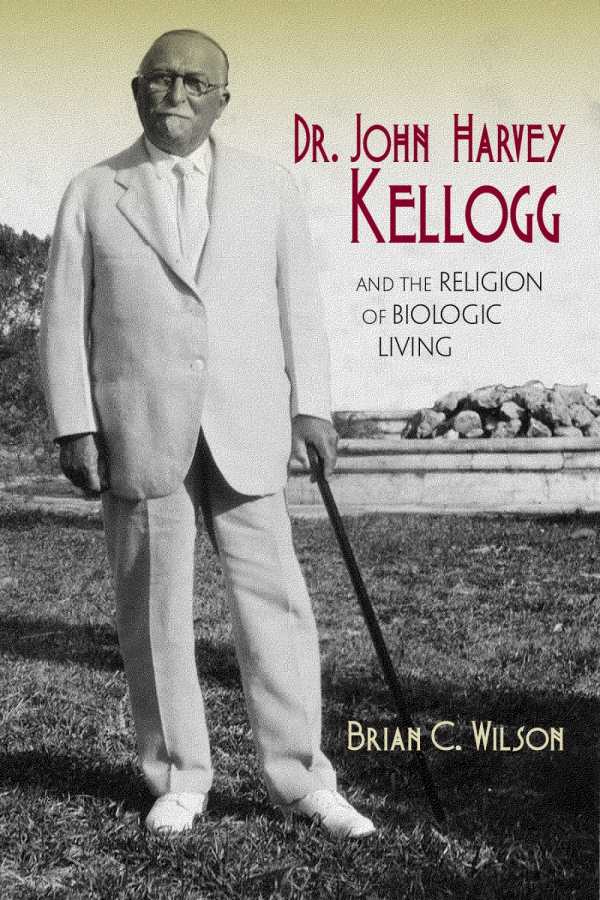
Dr. John Harvey Kellogg and the Religion of Biologic Living
Spiritual health leads to physical health, said Kellogg, the charismatic subject of this quirky biography.
He’s a round, goateed fellow, dapper in his all-white suit (the better to absorb the sun’s healing rays) on the cover of Dr. John Harvey Kellogg and the Religion of Biologic Living, by Brian C. Wilson. While he may look like a certain Kentucky Fried Colonel, Kellogg was an early advocate of a vegan diet and the intriguing figure behind the famous Battle Creek Sanitarium that paved the way for many contemporary ideas of holistic health and wellness. His highly detailed theories of “biologic living” matured over his ninety-one years as he absorbed new information from a wide array of scientists and thinkers. He “biologized sin and sacralized wellness,” stating that moral and spiritual health stemmed directly from healthy living.
Wilson’s focus is on his subject’s religious evolution. Born into a devout Seventh-day Adventist family, the young Kellogg moved to the epicenter of this 19th-century religious movement in Battle Creek, Michigan, and had close ties with Adventist founders Ellen G. White and James Springer White. Though faith healing had once been the preferred medical treatment among church members, Kellogg’s natural charisma helped convince the Whites to send him to medical school, and it is his unique open-mindedness to modern scientific theories and an ability to reconcile them with his spiritual beliefs that made Kellogg such an intellectual force and led to his eventual break with the Whites.
This examination of Kellogg’s evolving views is a great way to explore many social and religious movements of the late 19th and early 20th centuries. Wilson’s lively and accessible writing introduces readers to spiritualism, millennialism, the temperance and social purity movements, Swedenborgians, and Mormons. He also neatly describes prevailing theories about health and how they changed as new scientific discoveries arose. Though some of the Battle Creek Sanitarium therapies may seem bizarre to modern minds—hydropathy, sexual temperance, Fletcherism (chewing one’s food until liquefied)—compared to the prevailing medical quackery of purgatives, elixirs, and bloodletting, Kellogg’s emphasis on a clean diet, exercise, and mind-body connection seem cutting edge even today.
There are extensive notes throughout and a comprehensive bibliography for readers who wish to further explore aspects of Kellogg’s fascinating life and beliefs. Wilson’s book is a thought-provoking portrait of a charismatic, intelligent medical doctor who never stopped absorbing new information and honing his theories, even when he was faced with disfellowship from his church and ostracism by friends and colleagues.
Reviewed by
Rachel Jagareski
Disclosure: This article is not an endorsement, but a review. The publisher of this book provided free copies of the book to have their book reviewed by a professional reviewer. No fee was paid by the publisher for this review. Foreword Reviews only recommends books that we love. Foreword Magazine, Inc. is disclosing this in accordance with the Federal Trade Commission’s 16 CFR, Part 255.
